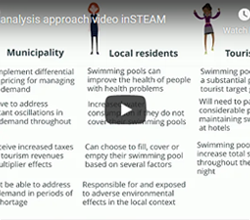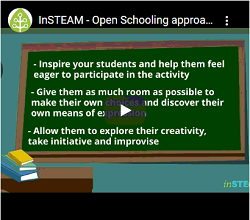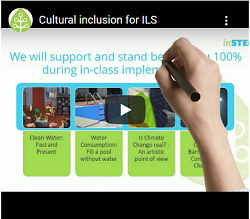Inclusion is the practice or policy of providing equal access to education opportunities and resources for people who might otherwise be excluded or marginalized, such as those who are members of other minority groups or have physical or mental disabilities.
In order to make the interdisciplinary Inquiry Learning Lessons or activities inclusive the consortium use the principles of Universal Design for Learning. The Universal Design for Learning (UDL) offers flexibility in the ways students access material, engage with it and show what they know. This approach helps give all students an equal opportunity to succeed.
Universal Design for Learning in Practice
You can consult with the lesson plan in a PDF format [inSTEAM_UDL_LessonPlan]

Useful Resources:
- Universal Design for Learning Guidelines: http://cast.org/our-work/about-udl.html
- Using Information Communications Technologies (ICT) to Implement Universal Design for Learning (UDL): https://urc-chs.com/sites/default/files/urc-grn-ict.pdf
- Tomlinson, C.A. (2014) The Differentiated Classroom: Responding to the Needs of All Learners. 2nd Edition, ASCD, Alexandria
inSTEAM suggests four (scientific, socioeconomic, open schooling and cultural) inclusive impact approaches for the topics of environmental education. The scientific inclusive impact approach based on the basic scenario of the inquiry-based learning and Universal Design for Learning. The socioeconomic, open schooling and culturally inclusive impact approaches are presented below.
Socioeconomic Approach

Open Schooling

Cultural Approach


